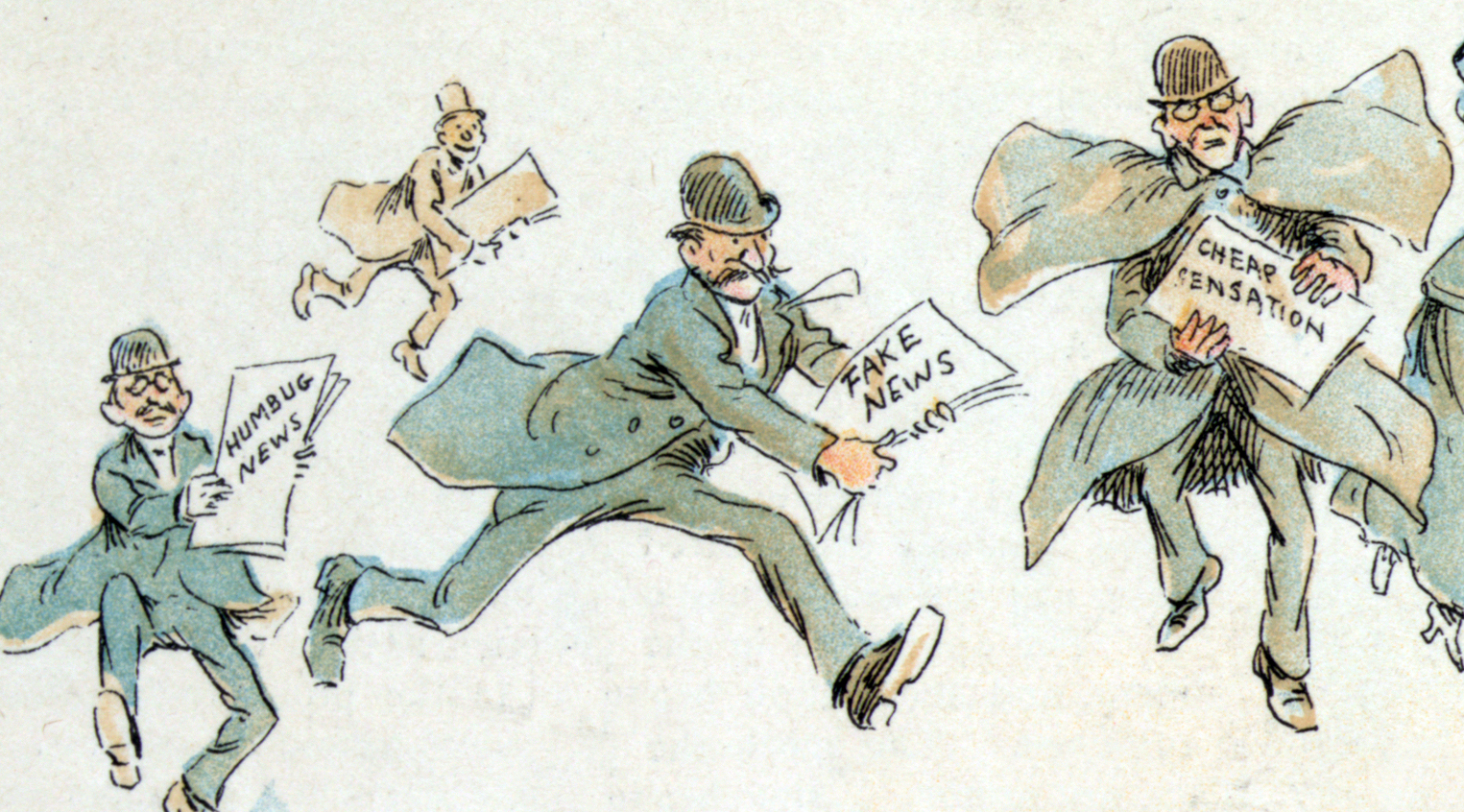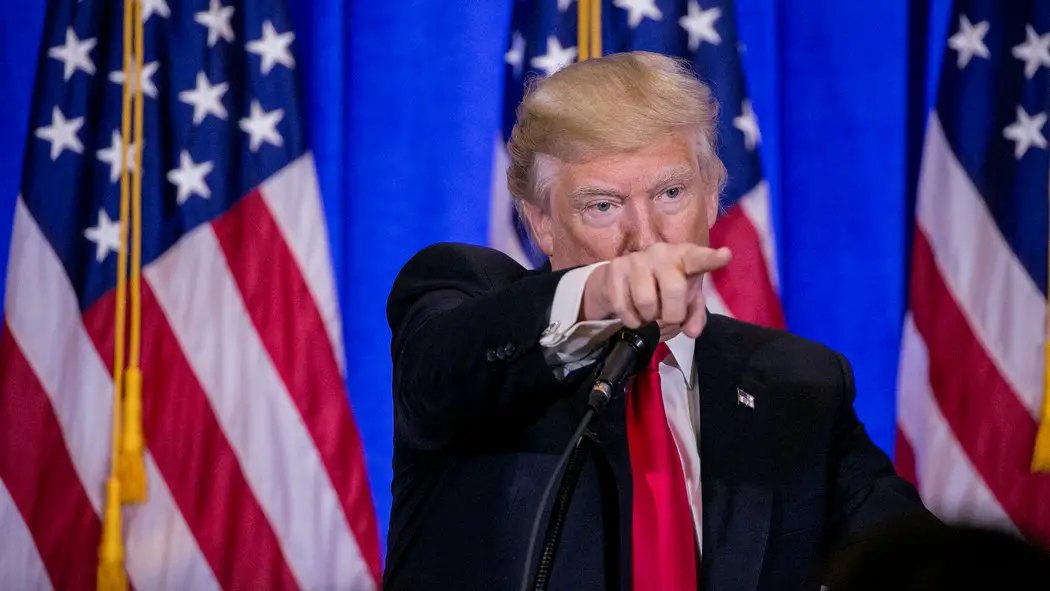There’s an article in Politico that claims that “fake news” began at the 1968 Democratic Convention. The idea is that “the Silent Majority” hated the protestors, and were on the side of the police. Yet, the TV news showed cops attacking people, instead. The complaint was that the “real” news was about the disruptors. But the thing to remember is that it’s hard to be even-handed when you’re being beaten with a billy club. It was not the protestors who were attacking the media, so from the reporters’ perspective, the violence was very one-sided.
Mayor Richard J. Daley had turned Chicago into a fortress.
What could possibly go wrong?
With the whole world watching, the three major news networks brought the answer to that question into millions of Americans’ living rooms. They spared barely a second of the ensuing mayhem in their coverage—and in the course of doing so sparked a national debate about objectivity and journalistic integrity.
The liberal-minded tuned in and saw textbook police brutality and “Gestapo tactics,” in the words of Connecticut Senator Abraham Ribicoff. But millions of Middle Americans, the citizens Richard M. Nixon would later immortalize as the “silent majority,” saw an entirely different display of excess—on the part not of the police, but of the TV networks.
The Archie Bunkers of America, impassive to the hippies’ and yippies’ plight, saw them playing the newsmen like a fiddle, getting free publicity for their cause and, ultimately, getting what they deserved from the police.
Archie Bunker was another strong force in making America more conservative, although the show, All in the Family, didn’t debut until 1971. Liberals laughed and were glib about Archie’s “stupidity” in supporting Richard Nixon. But what they didn’t realize at the time, was that the Carroll O’Connor character was sincere and lovable, while their hero, Rob Reiner (as son-m-law, Mike the “Meathead”), was pompous and sometimes had to admit to being insincere, as when their Black neighbor, Lionel Jefferson, pointed out that all he wanted to talk about was race, instead of connecting with Lionel as a man, first. He was a reverse racist.
More importantly, many white workers identified with the downtrodden Archie, rather than their loud-mouthed kids, and probably helped to form the movement of “Reagan Democrats.”
We tend to think of the pre-Watergate era as an Edenic vista of trust and fidelity toward our institutions, especially the media—but the skepticism and stubborn partisan distrust that many feel today was present then, too.
In 1968, there were complaints of bias by the reporters who were beaten, but the expression “fake news” was not in common coinage until much later. Donald Trump claims to have invented it.
[In his 18th interview with FOX, Trump said] “I think one of the greatest of all terms I’ve come up with is ‘fake’,” he said.“I guess other people have used it, perhaps, over the years, but I’ve never noticed it.”
Mr Trump was being interviewed by Governor Mike Huckabee, the father of his press secretary, Sarah Huckabee Sanders, and vocal supporter of the Trump administration.
Forbes says that Mark Zuckerberg also claims to have invented the phrase.

However, according to Matthew Jordan, writing at The Conversation, the phrase dates back much earlier:
As a rhetorical strategy for eroding trust in the media, the term dates back to the end of the 19th century.
Then – as now – the term became shorthand for stories that would emerge from what we would now call the mainstream media. The only difference is that righteous muckrakers were usually the ones deploying the term. They had good reason: They sought to challenge the growing numbers of powerful newspapers that were concocting fake stories to either sell papers or advance the interests of their corporate benefactors. . ..
I found that journalists used “fake” in the 19th century to warn American consumers about products proffered by patent medicine pushers, con artists and hucksters.
But I also found that just prior to the Spanish-American War in 1898, readers started getting warned about “fake news.” At the time, the newspapers of media magnate William Randolph Hearst started publishing made-up interviews and stories about invented battles. . .
Populist William Jennings Bryan cried fake news when misleading stories went out over the AP wire claiming that Bryan was supporting Teddy Roosevelt for a third term.
Yes, a hundred years ago, it was progressives who were shouting “fake news” about newspapers that were lying for corporations and warmongers.
The Smithsonian says fake news even goes back to the beginning of the Republic.
In the margins of his copy of Condorcet’s treatise Outlines of an Historical View of the Progress of the Human Mind, President John Adams scribbled a cutting note.
Writing in the section where the French philosopher predicted that a free press would advance knowledge and create a more informed public, Adams scoffed. “There has been more new error propagated by the press in the last ten years than in an hundred years before 1798,” he wrote at the time. . .
Condorcet’s 1795 text expanded upon the belief that a press free from censorship would circulate an open debate of ideas, with rationality and truth winning out. Adams’ marginal response reminds us that when something like truth is up for debate, the door is open for bad-faith actors (the partisan press in his view) to promulgate falsehoods—something that a reader today might call “fake news.”
A site called “GodUpdates” says the earliest “fake news” came from the Serpent in the Garden.
Basically, “fake news” is a lie. But in order to be a “lie,” what is said must be known to be false. It’s not “fake news,” for instance, if a reporter says, “sources say,” because while the sources may be wrong, it is absolutely true that the sources “said it.” But the most important thing to remember is that it’s the job of the press to keep government’s feet to the fire. Telling truth to power.
Britain’s The Guardian warns against trying to legislate against fake news. To have those in power manipulate the media is dangerous, indeed.
Fake news has a long history. Beware the state being keeper of ‘the truth’ . . .
As Donald Trump has so ably demonstrated, the cry of “fake news” has become a way of dismissing inconvenient truths. And from China to the Philippines, repressive regimes use the charge of “fake news” to impose censorship and crush dissent. . .
In the past, those with power manipulated facts so as to present lies as truth. Today, lies are often accepted as truth because the very notion of truth is fragmenting. “Truth” often has little more meaning than: “This is what I believe” or: “This is what I think should be true”. . .
In 1675, Charles II issued a new “proclamation for the suppression of coffee houses” because “divers false, malicious and scandalous reports are devised and spread abroad”. The king declared that “coffee houses be… put down and suppressed”. The attempts to control today’s fake news through contemporary equivalents of the suppression of the coffee house are equally misguided and dangerous.
Sadly, the charge of “fake news” has become common among despots.
Donald Trump’s insistence that any challenges to the actions and utterances of the president are “fake news” is particularly chilling because it resembles a tactic used by authoritarian regimes seeking ways to silence independent reporting.
Malaysian authorities looking for new ways to criminalise critical news reporting now include fake news charges. In Egypt – dubbed “one of the world’s biggest prisons for journalists” by the Committee to Protect Journalists – being accused of spreading fake news can come with serious sanctions for national news journalists. In March 2018, it was an accusation used increasingly as a means to intimidate and deter foreign media in the run up to the presidential election.
However, those with a long view have hope.
Nevertheless quality journalism has a history of survival. Why? Because the public, according to most audience surveys, persistently value accurate, sincere and objective news – news that they believe displays editorial integrity. And they do so because they conform to a deeply held need for a fair-minded and comprehensive understanding of events. In other words, the public regard quality journalism as a civil necessity.
Donate Now to Support Election Central
- Help defend independent journalism
- Directly support this website and our efforts
